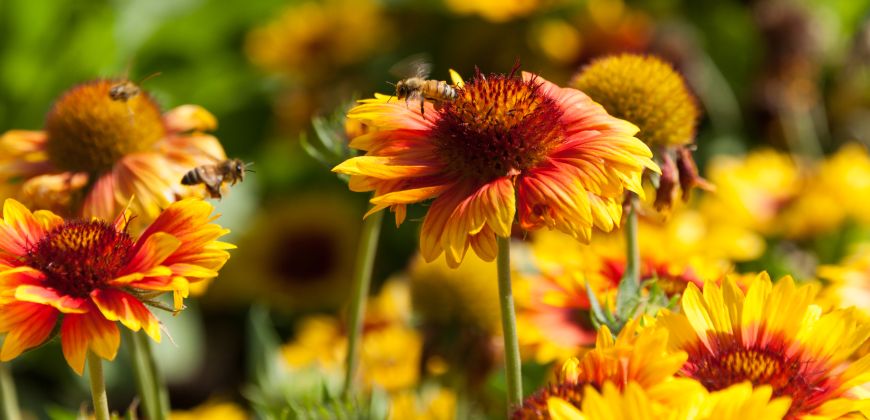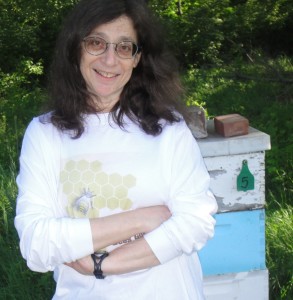

May Berenbaum’s talk, “Insects and wild parsnips: Coevolutionary arms races and peace treaties,” will be live streamed here at 3:30 p.m. on Sunday, Nov. 1.
Member of the National Academy of Sciences – check.
Winner of the prestigious Tyler Prize for Environmental Achievement – check.
Having the president of the United States personally give you the National Medal of Science – check.
In a career that has seen numerous awards, accolades and achievements, May Berenbaum has been a public intellectual translating entomology for the general public, testifying before Congress on the disappearing honey bees, and guiding graduate and undergraduate students on the study of insects. On Nov. 1, Berenbaum will travel to Colorado State University to deliver the Thornton-Massa lecture, an annual lecture focused on plant biodiversity.
16th annual Thornton-Massa lecture
3:30 – 5 p.m.
Nov. 1
Lory Student Center Theater
This year’s 16th annual Thornton-Massa lecture will take place from 3:30 – 5 p.m. in the Lory Student Center Theater and is free and open to the public.
‘Insects and wild parsnips: Coevolutionary arms races and peace treaties’
Berenbaum’s talk, “Insects and wild parsnips: Coevolutionary arms races and peace treaties,” will focus on the essential role that insects play in promoting plant biodiversity. Berenbaum has served as the head of the Department of Entomology at the University of Illinois for more than 20 years and holds one of that university’s highest honors, a Swanlund Chair.
“As unlikely as it might seem, even after 40 years of study, this seemingly unremarkable interaction between a noxious roadside weed and its small, unprepossessing caterpillar associate continues to yield insights into all kinds of ecological and evolutionary issues,” said Berenbaum.
Raising awareness of honeybee decline
Among her many passions, Berenbaum has devoted considerable energy to examining recent declines in honeybee populations around the world. She chaired the National Academy of Sciences committee on the status of pollinators in North America and has helped increase public awareness of the honeybee decline. She has even appeared in documentaries on the bee decline, including “Queen of the Sun: What are the Bees Telling Us?” and “Pollen Nation.”
Insects on film and in television
Berenbaum’s connections to popular culture go well beyond having her expertise featured in documentaries. She also created the Insect Fear Film Festival, an annual event in its 32nd year on the Illinois campus that addresses insect-related fear and loathing and the film industry’s penchant for casting insects as villains. In still another connection to popular culture, Berenbaum served as the inspiration for an entomologist on the TV series the X-Files, aptly named Bambi Berenbaum.
The real Berenbaum’s many other honors include her status as a fellow of the American Association for the Advancement of Science, the American Academy of Arts and Sciences, and the Entomological Society of America. She is also an honorary fellow of the Royal Entomological Society.
About the Thornton-Massa Lecture
The lecture honors the late Dr. Emil Massa of Denver and the late Bruce and Mildred Thornton, who shared a common interest in biodiversity, plant genetics, agriculture and horticulture. These commonalities led their families to endow an annual public lecture through the CSU College of Agricultural Sciences and the College of Natural Sciences.
Dr. Massa was a Denver physician who studied trees and grasses. His curiosity about plants and their origins, plant breeding, and biodiversity led him to support not only this lecture series, but also the Denver Botanic Garden and the Denver Park People, a citizen organization working to preserve, enhance, and advocate for Denver’s urban forest.
Bruce and Mildred Thornton shared a lifelong interest in and commitment to the study, identification and preservation of seeds. Mildred Thornton attended then-Colorado State College and, after receiving her master’s degree in botany, went to work as a junior botanist at the Federal Seed Laboratory in Washington, D.C. Bruce Thornton served on the Colorado State College faculty and the Agricultural Experiment Station staff from 1927-1962, and he headed the Colorado State Seed Laboratory from 1940 to 1961. They married in 1930, and when Bruce retired in 1961, Mildred took over the directorship of the State Seed Laboratory, where she had worked occasionally for 20 years.
More information
For more information, visit thorntonmassa.colostate.edu.